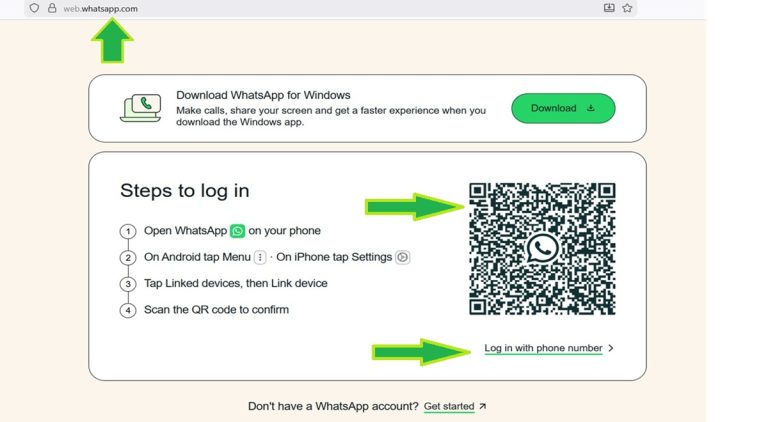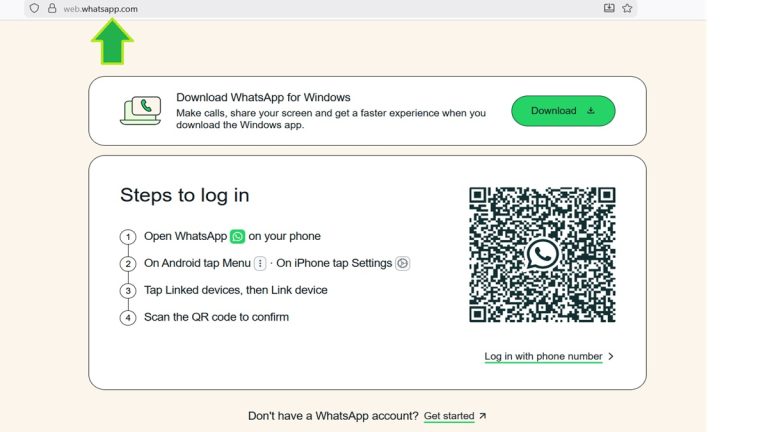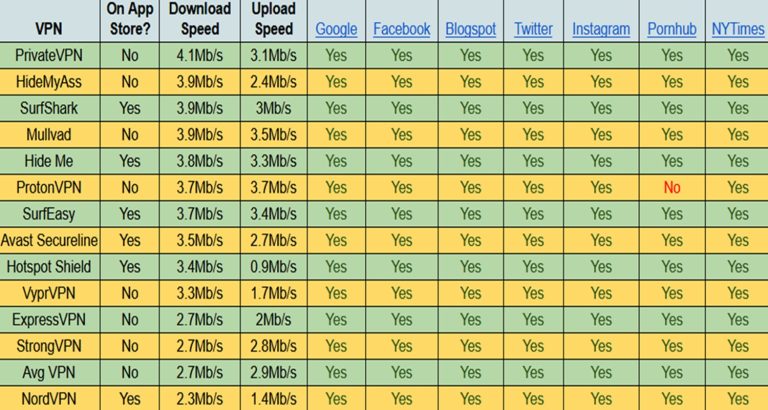The Best VPNs for China in 2026 (Real Tests of VPNs that actually work in China)
Welcome! This is the updated list of the best VPNs for China in 2026, with real tests of VPNs that work in China + China VPN Alternatives. Dig in!
A VPN is required to access Western sites from China. We recommend NordVPN, as the speed good, and they have a 75% OFF offer here: Get 75% off NordVPN.
从中国访问AO3, Google, Facebook, Whatsapp 需要使用VPN。我们推荐NordVPN,因为它的速度最快,而且他们目前有75%的折扣优惠:NordVPN七五折优惠。
China has one of the most advanced internet censorship systems in the world. The “Great Firewall” blocks Google, Gmail, Facebook, Instagram, X (Twitter), WhatsApp, Telegram, Ao3, Tumblr, Reddit and many Western news sites. Most VPNs stop working after a few days. Some never work at all.
This guide focuses on VPNs and workarounds that have a realistic chance of working in mainland China in 2026. It is based on real tests in Beijing on two ISPs plus extra research on tools that are built for China.
Important note: VPN use in China exists in a legal gray zone and is tightly regulated. This article is for information only. Always check the latest local regulations before using a VPN in China.
How We Tested VPNs in China.
We travelled to Beijing and tested 28 paid VPN services on two different internet providers:
- China Unicom (large national ISP, often tougher on VPNs)
- Ultra Kings Limited (also known as Voiz Plus)
We tried to visit 19 blocked websites and services with each VPN, including major Western news sites and popular social networks. We also tested important messaging apps such as WhatsApp, Telegram, and Viber.
Some key points from our Beijing tests:
- Only a minority of VPNs could connect reliably on both ISPs.
- Most VPN homepages were blocked in China. You must download VPN apps before you arrive.
- Ultra Kings Limited was a bit more VPN-friendly than China Unicom, but both blocked many VPN IPs.
The list below includes VPNs that did well in our tests plus two China-specific VPNs (LetsVPN and V1VPN) that are widely used by people inside China. We moved them to positions #3 and #4 as requested. For LetsVPN and V1VPN we relied on public information and user reports, not our original Beijing test set.
Quick List: Best VPNs for China in 2026.
A VPN is required to access Western sites from China. We recommend NordVPN, as the speed good, and they have a 75% OFF offer here: Get 75% off NordVPN.

1. TotalVPN – Easiest All-Round Pick for China
TotalVPN is now our top recommendation for many users in China. It is not the most advanced VPN in the world. But it gives a very good balance between ease of use, streaming support, and basic stealth features.
In our tests, TotalVPN connected on both ISPs once we enabled its “stealth” or obfuscation options. It got through the Great Firewall on most attempts. It opened all key Western sites and messaging apps.
On Ultra Kings Limited, our base speed without VPN was about 3.9 Mbps down and 3.3 Mbps up. With TotalVPN we got around 2.5 Mbps down and 1.8 Mbps up. Not fast, but fine for messaging, social media, and low-resolution video.
On China Unicom the baseline was about 5.1 Mbps down and 0.5 Mbps up. With TotalVPN we saw about 4.0 Mbps down and a similar 0.5 Mbps up. Again, acceptable for everyday use.
TotalVPN actively rotates servers and IP addresses. When a server gets blocked, they usually bring new ones online. This is crucial in China where IPs get blacklisted often.
Pros:
- Simple apps for all major platforms.
- Obfuscation / stealth options to hide VPN traffic.
- Good mix of 1,800+ servers in 80+ countries.
- Works with popular streaming sites on many servers.
Cons:
- Based in the UK, which is not a top privacy jurisdiction.
- No WireGuard support yet. Only OpenVPN and IKEv2.
- Speeds are good but not “top tier”.
If you want one easy VPN to install before your trip, TotalVPN is a solid starting point.
2. NordVPN – Strong Speeds, Strong Obfuscation
NordVPN has improved a lot in China over the last few years. Earlier it was hit-and-miss. Now, with obfuscated servers and its NordLynx protocol, it often works very well.
In our Beijing tests, NordVPN accessed all 19 test sites on both ISPs. WhatsApp, Telegram, and Viber all worked without problems. It kept more than 90% of the baseline speed on both networks, which is excellent for China.
NordVPN is based in Panama and follows a strict no-logs policy. The policy has been audited by outside firms several times. For privacy-conscious users, this is a big plus.
Pros:
- Large network of 8,000+ servers in 60+ countries.
- NordLynx (WireGuard-based) protocol for speed and security.
- Obfuscated servers designed for countries like China.
- Extra features such as Double VPN and Onion over VPN.
- Works with Netflix, Disney+, and many other services.
- Up to 10 devices per account.
Cons:
- Apps have many options. Beginners may feel overwhelmed at first.
- Some servers are overloaded at peak times. You may need to switch a few.
NordVPN is a great choice if you want both speed and strong privacy when you are in China.
A VPN is required to access Western sites from China. We recommend NordVPN, as the speed good, and they have a 75% OFF offer here: Get 75% off NordVPN.
3. LetsVPN – Mobile-First VPN Widely Used in China
LetsVPN is a mobile-focused VPN that is heavily marketed to Chinese users. You will see it in Chinese app stores and in many discussions about “VPNs that just work on phones.” It uses its own protocol and smart routing.
We did not include LetsVPN in our original 28-VPN Beijing test set. This section is based on its public website and user feedback.
How LetsVPN works for China users
LetsVPN focuses on quick connection from inside China. Its Android and iOS apps try to detect the best route and node automatically. For most users, you just tap once and it connects. It is popular for unlocking social media, gaming, and foreign video sites.
LetsVPN – Pros:
- Very simple setup on mobile. One-tap connection.
- Apps available directly in many Chinese app stores.
- Proprietary protocol tuned for bypassing blocks.
- Good for casual browsing, social media, and light streaming.
LetsVPN – Cons:
- Less transparent than classic VPN brands about technical details and logging.
- Some user reports mention sudden account blocks or throttling after heavy use.
- Desktop support is limited compared to global VPN brands.
LetsVPN can be a useful backup on your phone. It is handy when your main VPN fails. But avoid using it as your only privacy tool, and avoid very heavy downloads through it.
4. V1VPN – Built Specifically for Mainland China
V1VPN is another service specifically designed for people living in China. It promotes “China-optimized” routes and stealth modes that look like normal HTTPS traffic.
Again, V1VPN was not part of our original Beijing lab tests. The points below come from its official site and user comments.
Why V1VPN is interesting for China
V1VPN claims to focus 100% on working behind the Great Firewall. It tries to offer stable access to Google, TikTok, Netflix, and other blocked apps. It uses smart routing and obfuscated protocols to hide VPN signatures.
V1VPN – Pros:
- Engineered specifically for mainland China users.
- Stealth mode that makes traffic look like normal HTTPS.
- Smart routing to choose paths that are less likely to be blocked.
- Focused on popular apps and streaming platforms in China.
V1VPN – Cons:
- Smaller, less known brand outside China. Fewer independent reviews.
- Less information about legal entity, audits, and logging.
- Website itself can sometimes be hard to reach from inside China without a working VPN or mirror link.
V1VPN can be a good second or third option, especially if you stay in China long term. Use it together with a more established global VPN, not as your only tool.
5. ProtonVPN – Privacy-First VPN with a Free Tier
ProtonVPN is run by the Swiss company behind ProtonMail. The service is built around privacy and open-source software.
In Beijing, ProtonVPN worked well on both ISPs. It opened all test sites except one adult site on the first ISP. On the second ISP it opened all 19 test sites. Messaging apps worked fine.
On Ultra Kings Limited, its speeds almost matched the baseline. In fact, upload speeds were slightly higher, likely because the VPN bypassed some ISP throttling. On China Unicom, it also stayed close to baseline speeds.
Pros:
- Located in Switzerland with strong privacy laws.
- Strict no-logs policy. Open-source apps. Regular audits.
- 3,000+ servers in 70+ countries.
- Good streaming support and strong encryption.
- Supports up to 10 devices on paid plans.
Cons:
- China performance is good, but not always as stable as NordVPN or TotalVPN during political events.
- Free plan is great, but free nodes can be slow and easier to block in China.
ProtonVPN is ideal if privacy is your top concern and you like open-source tools, but always test it in China before you rely on it for work.
6. Surfshark – Unlimited Devices and Strong Bypass Tools
Surfshark is popular for one main reason. It allows unlimited devices on a single subscription. That makes it perfect for families or people with many gadgets.
In our China tests, Surfshark worked on both ISPs. Its NoBorders and Camouflage modes were effective at hiding VPN use. It reached almost all baseline speeds and opened all test sites.
Pros:
- Unlimited simultaneous connections.
- NoBorders mode for restricted regions like China.
- Camouflage servers that disguise VPN traffic.
- 3,200+ servers in 100+ countries.
- Built-in ad and tracker blocking (“CleanWeb”).
- Modern WireGuard protocol support.
Cons:
- Some advanced features only exist on newer OS versions.
- Like all VPNs in China, it can temporarily fail during sensitive events and needs manual server switching.
Surfshark is a strong value pick. If you have many devices, it can be your main VPN, plus you can still add a China-specific backup like LetsVPN or V1VPN on your phone.
7. Mullvad – Maximum Privacy, Minimal Fuss
Mullvad is a Swedish VPN focused on privacy. You do not even need an email to sign up. You get a random account number and pay with card, cash, or crypto.
In Beijing, Mullvad was one of the best performers. It opened all 19 test sites and all tested messaging apps on both ISPs. Speeds were very close to or even above baseline on Ultra Kings Limited.
Pros:
- Extreme privacy model with anonymous account numbers.
- WireGuard-only by 2026. Very fast and modern protocol.
- 500+ servers in 40+ countries.
- Support for Shadowsocks bridges, which helps in China.
- Simple flat price for all users.
Cons:
- Apps are functional but not as “pretty” or beginner-friendly as some rivals.
- Customer support is limited to email and documentation. No live chat.
Mullvad is a great choice if you care more about anonymity than Netflix libraries. It works in China, but you must be comfortable tweaking settings like bridges and ports.
8. Astrill VPN – Long-Time Favorite of Many Expats
Astrill VPN has been a “China classic” for years. Many expats in Shanghai, Beijing, and Shenzhen use it as their main VPN.
In our testing, Astrill opened all 19 sites on both ISPs. Its StealthVPN protocol was particularly good at getting through deep packet inspection. Speeds were strong and stable.
Pros:
- StealthVPN and other China-oriented modes.
- Smart Mode, which only tunnels blocked sites through the VPN.
- Router support to protect whole homes and offices.
- Multi-hop and port forwarding for advanced users.
Cons:
- More expensive than most competitors.
- Interface and website feel more technical and less polished.
If reliable China access is worth paying extra for, Astrill is still one of the best options. Many long-term foreigners in China treat it as their “main engine.”
9. VyprVPN – Owns Its Servers, But Now a Mid-Range Option
VyprVPN used to be one of the top China VPNs thanks to its Chameleon protocol and company-owned server network. It still works, but it is no longer the clear leader.
In our tests, VyprVPN opened 18 out of 19 sites on both ISPs. It sometimes had trouble with TorProject.org. Speeds were decent and close to baseline, but not the fastest.
Pros:
- Chameleon protocol to hide VPN signatures.
- Runs its own server network instead of renting from others.
- Good Wi-Fi protection for public hotspots.
- Supports many devices at once.
Cons:
- Service quality has slipped versus newer rivals.
- Fewer recent transparency updates and audits.
- Apps on some platforms lack important features like a kill switch.
VyprVPN can still be a usable backup or second VPN in China, but we now prefer NordVPN, TotalVPN, or Surfshark for most users.
Local Chinese VPN Services (This is what the Chinese USe) Quick-Pick Recommendations Based on Price/Feature.
| Category | Recommended Services | Key Characteristics |
|---|---|---|
| High Stability / IEPL | BoostNet, WgetCloud, TAG, Kycloud, Old Cat Cloud, Just My Socks (IPLC) | IEPL private lines, low latency, high bandwidth, generally higher price. Ideal for users prioritizing stability. |
| Best Value (Budget) | BeiBei Cloud, YiYunTi, TaiShan, Edge-x, Haida | Public network transit, cheaper monthly prices (starting around 10–20 RMB/month). Suitable for light use. |
| Small / Backup Traffic | YuTu, TAG, Kycloud (Mini), DaGe Cloud, Ash, ShanHai | Offer annual small-flow packages or metered-usage / permanent traffic packages, good as backup “airport” options. |
| Feature Rich | TAG, Kycloud | TAG: Many rare / native / home (家宽) IPs, ideal for streaming and geo-unblocking across 90+ countries. Kycloud: Unlimited devices, multiple entry points, IEPL routes for better stability. |
| Self-Built / Safer Alternative | Just My Socks (JMS) | Official service from Bandwagon Host (搬瓦工). Highly secure, almost no auditing (except BT). IPs are automatically switched if blocked. More expensive, but safer and less likely to “run”. |
| Self-Hosting Stack / Tool | Hiddify | Open-source stack and panel for building your own proxy/VPN-style setup. Suitable for advanced users who want to self-host instead of relying only on third-party “airports”. |
Local Chinese VPN services (The “Airports”)
If you want to do what the locals do, and save some money, we have added a list of 29 VPN proxy services , with basic details on pricing, protocol, transit type, and owner location. Please note, that these services are not VPN service exactly, rather it is an extra layer of proxy protection that people use to hide their identities.
They are subscription-based proxy networks that rely on apps like Clash, Shadowrocket, V2Ray, Hiddify, Sing-box, etc. Think of them as a subscription that gives you proxy nodes, not a full VPN service.
In Chinese internet slang, an ‘Airport’ “机场” refers to:
✔ A paid subscription service
✔ That provides proxy nodes (SS/SSR/V2Ray/Trojan/Reality/Hy2…)
✔ Delivered through a subscription URL (订阅链接)
✔ For use in proxy clients like Clash, Hiddify, Shadowrocket, V2RayNG
Chinese users call these “airports” instead of “VPNs”, because you “board a plane” (use a node) to “fly overseas”. It’s just slang.
These are the most popular Chinese ‘Airports’.
| # | Name (Pinyin / English) | Transit Type | Protocol | Price Range (Monthly) | Owner Location |
|---|---|---|---|---|---|
| 1 | BoostNet | IEPL Private Line | SS | ¥39 (200G) | Outside China |
| 2 | YuTu (悠兔) | IEPL + Tunnel Transit | SS | ¥29 (150G) | Outside China |
| 3 | WgetCloud | IEPL Private Line | SS / Trojan | ¥59 (140G) | Hong Kong |
| 4 | TAG | IEPL Private Line | SS | ¥154 / Year (200G / Year) | Hong Kong |
| 5 | BeiBei Cloud (贝贝云) | Public Network Transit | SS | ¥14.3 (100G / Month) | Outside China |
| 6 | Kycloud | IEPL Private Line | SS / Vmess | ¥150 / Year (10G / Month) | Overseas |
| 7 | Haida (海獭) | Public Network Transit | Trojan | ¥25 / Quarter (50G / Month) | Overseas |
| 8 | Old Cat Cloud (老猫云) | IEPL Private Line | Trojan | ¥45 / Quarter (50G / Month) | Overseas |
| 9 | CTC2 | Direct Connection (Vless / Reality) | Vless / Reality | ¥35 / 6 Months (25G / Month) | N/A |
| 10 | E-IX | IEPL Private Line (Multi-route) | SS | ¥199 / Year (1T / Year) | Taiwan |
| 11 | YiYunTi (一云梯) | Public Network Transit | Trojan | ¥15 (100G) | N/A |
| 12 | web3 Accelerator | IEPL Private Line | SS | ¥25 (200G) | Japan |
| 13 | ShanHai (山海) | Public Transit + Direct | Anytls | ¥3 (128G) | Australia |
| 14 | Edge-x | Public Tunnel Transit | SS | ¥16.8 (100G) | N/A |
| 15 | 365VPN | IEPL Private Line (Own Client) | Vmess | ¥30 (Unlimited / Speed Limited) | USA |
| 16 | WanDa Cloud (万达云) | Public Network Transit | Trojan | ¥14 (150G) | Singapore |
| 17 | Hutao | IEPL Private Line | SSR | ¥12 (50G) | North America |
| 18 | Arisaka | IEPL Private Line + Tunnel | SS | ¥16 (80G) | N/A |
| 19 | Totoro Cloud (龙猫云) | Public Network Transit | Trojan | ¥15 (100G) | Outside China |
| 20 | TaiShan (泰山) | Public Transit + IEPL | Trojan | ¥68 / Year (64G / Month) | Japan |
| 21 | STC-SERVER | Transit + Dedicated Line | SSR / Vmess | ¥38 (100G) | Hong Kong |
| 22 | DaGe Cloud (大哥云) | Public Network Transit | Trojan | ¥88 / Year (15G / Month) | Southeast Asia |
| 23 | YouXin Cloud (优信云) | Public Network Transit | Vmess | ¥9.99 (50G) | Southeast Asia |
| 24 | Fanta (芬达) | IEPL Private Line | SSR | ¥18 (158G) | North America |
| 25 | JiFeng Cloud (疾风云) | Public Network Transit | Vmess | ¥9.99 (50G) | Southeast Asia |
| 26 | Ash | Public Tunnel / IEPL | Trojan | ¥18 / Quarter (60G / Month) | N/A |
| 27 | PaoLu Cloud (跑路云) | Transit + Direct | SSR / SS-2022 / Hy2 / Vless | ¥18.9 (125G) | Japan |
| 28 | Just My Socks | IPLC / CN2 GIA | SS / Vmess | $5.88 (500G) | Canada (Official) |
| 29 | Hiddify | Self-Hosted / Tooling Stack | Multi-protocol (self-configured) | Self-hosted (no fixed monthly price) | Open-source project |
Free VPNs that Actually Work in China.
It’s very difficult to find free VPNs that reliably work in mainland China. The Great Firewall of China (GFW) actively blocks VPN traffic, and free services tend to have fewer resources to stay ahead of blocks.
These are some free VPN-options that might work:
- hide.me — Free tier with no data caps, supports good security and obfuscation. One reviewer says it can get around the GFW sometimes.
- çWindscribe — Reported by one site as the “only safe free VPN that works in China” with approximate ~85% success in unblocking, though performance may still be limited.
- Hotspot Shield — Mentioned as a free VPN option for China with unlimited data in its free plan and obfuscation features, although speed is capped.
Why free VPNs are unreliable in China:
The GFW uses deep packet inspection (DPI), advanced filtering, and many IP addresses that try to circumvent it are blocked or throttled. Free VPN providers often have limited resources (less infrastructure, fewer servers, fewer means to rotate IPs/protocols) which means they get blocked more easily. Many free VPNs compromise on other aspects like performance, data limits, security practices, or privacy. Some may even pose privacy risks. Because the environment in China is anti-VPN by design, no guarantee of functionality: what works today might fail tomorrow.
Heavy Use: Steam, Netflix, and Why VPNs Sometimes Block You
Even if a VPN works well in China, you can still get blocked by the VPN provider itself. This often happens when people use Steam downloads, P2P traffic, or 4K streaming on overloaded nodes.
Be careful with:
- Downloading huge games from Steam while connected to a free or cheap VPN.
- Streaming hours of HD video from Netflix or similar platforms over fragile China routes.
- Running heavy torrents or file sharing on servers that forbid P2P.
Many free VPNs and small providers have strict fair-use limits. If you use too much bandwidth, they may slow you down or even close your account. This is especially true inside China where each working server is valuable.
Tips:
- Read the VPN’s terms of service before relying on it for large downloads.
- Use paid, reputable VPNs for big Steam or Netflix sessions.
- Schedule large downloads for night-time when networks are less busy.
Also note that the YouTube app does not rely only on your IP address. On mobile devices it can use GPS or other location data. If YouTube still “thinks” you are in China, try disabling GPS and location permissions for the app in Android or iOS. This forces YouTube to rely more on your VPN IP instead of your phone’s location.
VPN Alternatives for China: eSIM Roaming and Other Tricks
VPNs are one way to bypass the Great Firewall. But they are not the only way. If your main goal is just to reach Google, Gmail, or WhatsApp reliably, roaming data can be easier in some cases.
One strategy is to buy a roaming eSIM from companies such as:
Some roaming eSIM plans connect you to networks outside mainland China, even while you are physically inside China. In those cases, you may bypass many local blocks without using a VPN at all. This depends on the carrier and route, so always read the details first.
Other practical tips and alternatives:
- Use international SIMs from nearby regions. SIM cards bought in places like Hong Kong or Singapore sometimes keep using foreign routing rules when you roam in China. This can bypass the Great Firewall in some cases.
- Airport and international hotel Wi-Fi. Some airport lounges and international hotel networks use foreign uplinks. They may have lighter filtering than normal Chinese home broadband.
- Mix VPN + roaming. You can combine an eSIM connection with a strong VPN for extra privacy and stability.
Remember that rules, routing, and enforcement can change. What works this month may not work next month. Always have more than one option.
The TLDR: How to Stay Online in China in 2026
No single VPN or trick will work 100% of the time in China. The Great Firewall changes constantly. IPs get blocked. Protocols get fingerprinted. Apps disappear from app stores.
The best strategy is simple:
- Install at least two global VPNs before you travel. For example, TotalVPN plus NordVPN or Surfshark.
- Add at least one China-oriented mobile option such as LetsVPN or V1VPN as backup.
- Consider a roaming eSIM from Airalo or Holafly as a non-VPN alternative.
- Keep GPS off for apps like YouTube when the VPN is on.
- Avoid heavy downloads or risky traffic on fragile servers, especially free ones.
With preparation and backups, you can usually stay connected to the open internet while living in or visiting China. Just remember that the situation is never static. Test your setup regularly and be ready to switch servers, apps, or even methods when the Great Firewall changes its rules.



